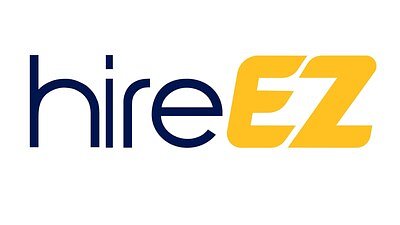
AI Arms Race in Hiring: New Tool Aims to Detect Resume Deception
As AI-generated resumes flood the job market, a new tool promises to detect manipulation and restore fairness to the hiring process. But is it enough to counter increasingly sophisticated tactics?
AI Arms Race in Hiring: New Tool Aims to Detect Resume Deception
MOUNTAIN VIEW, CA – November 11, 2025 – The battle for talent is increasingly being fought with artificial intelligence, and a new weapon has entered the arena. hireEZ, a recruiting automation company, recently launched 'ResumeSense,' an AI-powered feature designed to detect manipulation and deception in resumes submitted through its Applicant Match platform. The launch comes amid growing concerns that candidates are leveraging AI tools and deceptive tactics to game applicant tracking systems (ATS), raising questions about fairness, accuracy, and the very integrity of the hiring process.
The Rise of AI-Enhanced Deception
The proliferation of generative AI tools like ChatGPT has dramatically altered the job application landscape. While many job seekers are legitimately using AI to refine their resumes and cover letters, a growing number are employing more sophisticated – and ethically questionable – tactics. “We’re seeing a surge in AI-generated resumes that are intentionally designed to mislead ATS,” says one industry analyst. “Candidates are embedding keywords, manipulating formatting, and even hiding prompts within the document in an attempt to trick the system.”
This trend isn’t limited to simple keyword stuffing. Increasingly, applicants are using techniques like embedding hidden text – often in white or invisible font – containing instructions for the AI to prioritize their application. “The idea is to essentially ‘hack’ the ATS,” explains a recruiter specializing in technical roles. “They’re hoping to bypass the initial screening and get their resume directly in front of a human.” While some claim success with these techniques, a recent survey shows a significant percentage of companies are receiving applications containing false information.
The issue isn’t merely technical. Experts warn that these tactics create an uneven playing field, favoring those who are tech-savvy enough to exploit the system. “It disadvantages candidates who are genuinely qualified but lack the resources or knowledge to game the ATS,” states a DEI consultant. “It’s another barrier to equitable hiring.”
ResumeSense: A Counteroffensive
ResumeSense aims to level the playing field by providing recruiters with a tool to detect these deceptive practices. The feature analyzes resumes for hidden text, AI prompt injections, and suspicious match patterns. “We’re essentially using AI to fight AI,” explains a hireEZ spokesperson. “Our goal is to help recruiters identify potentially misleading applications and make more informed hiring decisions.”
The feature works by employing a multi-layered analysis process. It first scans the document for anomalies in formatting and metadata. Then, it uses natural language processing (NLP) to analyze the content for inconsistencies and suspicious patterns. Finally, it compares the resume to a database of known deceptive tactics. According to hireEZ, internal testing has revealed that 3-5% of resumes contain deceptive content.
While ResumeSense promises to improve the accuracy of resume screening, some experts caution that it’s not a foolproof solution. “AI detection is an ongoing cat-and-mouse game,” says one cybersecurity researcher. “As AI detection tools become more sophisticated, so too will the techniques used to evade them.” Furthermore, there’s a risk of false positives, potentially flagging legitimate resumes as deceptive. “It’s important to remember that AI is a tool, not a replacement for human judgment,” states a talent acquisition specialist. “Recruiters need to carefully review any flags raised by the system and make a final determination based on their own expertise.”
Beyond Detection: The Broader Implications
The launch of ResumeSense highlights a broader trend in the recruitment industry: the increasing reliance on AI and the growing need for transparency and ethical considerations. As AI becomes more prevalent in hiring, it’s crucial to address the potential for algorithmic bias and ensure that the process remains fair and equitable.
Several companies are now offering tools to combat resume fraud, but a fragmented landscape makes it difficult to truly address the problem. A recent report revealed that over 80% of Australian companies have received AI-generated resumes containing false information, highlighting the urgency of the situation. It’s essential for companies to adopt a holistic approach that combines AI-powered tools with human oversight and a commitment to ethical hiring practices. “We need to move beyond simply detecting deception and focus on building a more transparent and trustworthy recruitment ecosystem,” says a HR technology consultant. “That means being upfront about how AI is being used, providing candidates with opportunities to showcase their skills and experience, and ensuring that the process is fair and accessible to all.”
Whether ResumeSense and similar tools can effectively stem the tide of AI-enhanced deception remains to be seen. One thing is certain: the battle for talent is evolving, and the rules of the game are constantly changing.
